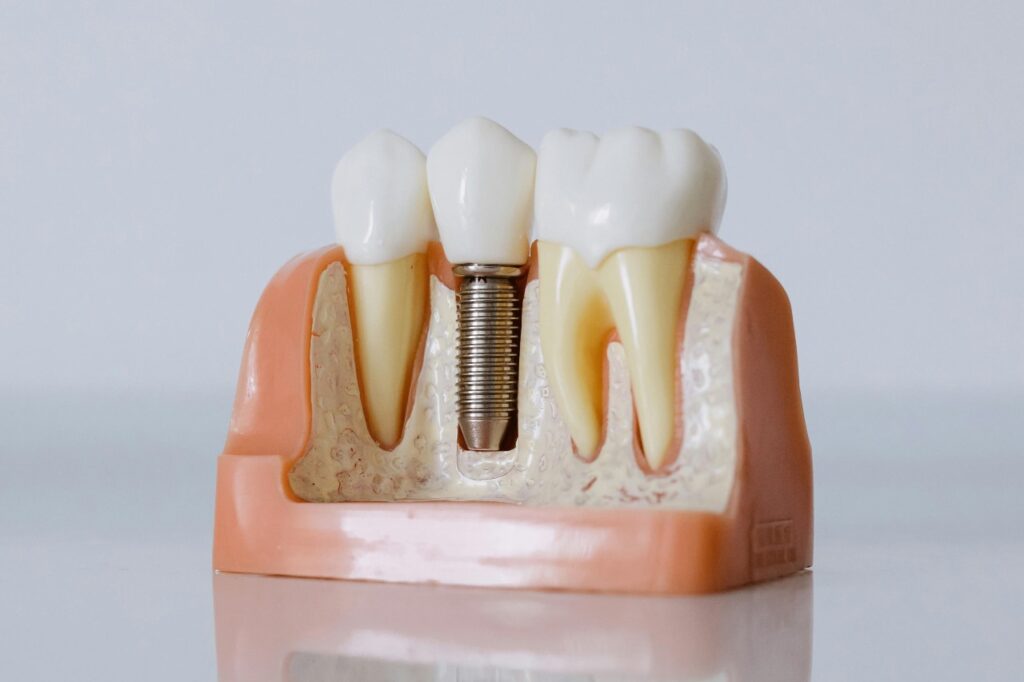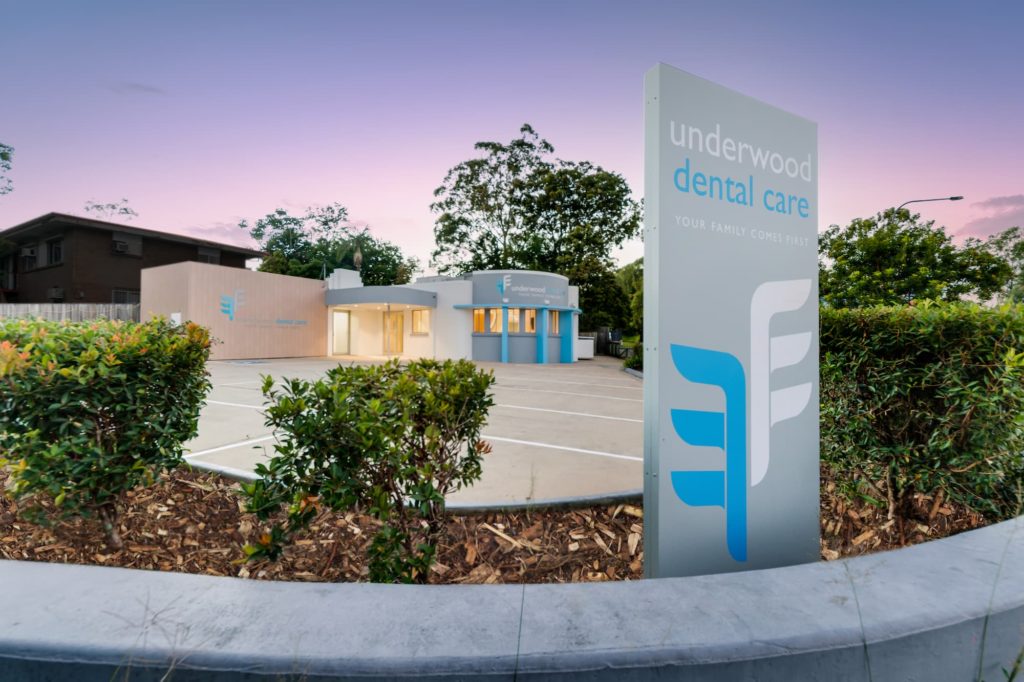Implants are a solution I often recommend to patients with missing teeth. They are a significant financial investment but important to consider the long-term benefits and lasting impact on your quality of life by making that investment.
I’ve been fortunate to assist many patients transform their smiles with dental implants and experience the life-changing improvements they can offer both functionally and aesthetically.
A dental implant acts as a durable and long-lasting artificial tooth root and a strong base for a replacement tooth. Implants can then be used for securing crowns, bridges, or dentures that closely mimic the look and functionality of natural teeth.
It’s no secret though that the cost of dental implants can be significant. If you are in Brisbane and looking for a dentist for your dental implants I will explain why the cost even in the Brisbane area can vary substantially.
How Much Do Dental Implants Cost in Brisbane?
The advertised price for dental implants in Brisbane is often in the range of $3,000 to $12,000.
It’s not uncommon though for a dental practice to advertise implants at a certain price that considers the lowest cost scenario and the actual quote is then much higher than the advertised price.
I would rather not do that. Instead, I will tell you the most typical price range for dental implants we offer at Underwood Dental Care and that is in the range of $4500-$6000.
You might think that is still a wide range and it is. However, I will explain why every case of dental implants is different and why the cost varies.
In this article, I will outline some of the major factors that affect the price including:
- Material
- Type of implant
- Attachment method
- Dentist expertise
- Location
If you’re considering one or more dental implants, perhaps even a full mouth of implants, this guide will help you consider the factors involved that influence price, so you can make an informed decision about your dental care.
Importantly, I will explain what makes dental implants a worthwhile investment when it comes to long term dental health outcomes.
The Main Factors Influencing Cost
Material
The most common types of material used to make dental implants are titanium and zirconia.
Titanium
The most commonly available dental implants are made from titanium or titanium alloy. Titanium has been in use for many years now for making implants and its durability and effectiveness with osseointegration is well proven.
Zirconia
A less common metal-free material is zirconia which is sometimes favoured for being able to be created with a tooth coloured appearance. Zirconia implants involve a more complex manufacturing process and have a higher cost.
Other Materials
Implants made from other materials are available on the market but those materials are usually considered experimental or inferior because of concerns about their durability, biocompatibility, or osseointegration.
If you are going to invest in dental implants I strongly advise investing in superior materials to ensure the long term success.

Attachment Method
There are too many types of implant designs and corresponding attachment methods to cover them all in this article. To keep things simple I’ll discuss the two most common attachment methods available.
Cemented Implants
With cemented implants, prosthetic teeth are cemented to the implant post. They are commonly used for teeth in very visible areas because they can offer a seamless appearance.
Cemented implants usually have a lower upfront cost because the attachment method is not as complex as screw retained implants. However, if future repairs or adjustments are required (e.g. removing a crown), that can increase the long term costs because of the amount of work required.
Screw Retained Implants
Screw Retained Implants feature a threaded design for fixing securely in the jawbone.
If future adjustments or repairs are required, the prosthetic tooth can be detached and reattached quite quickly. That can make the costs of screw retained implants cheaper in the long run when considering the ease of maintenance and potential cost savings of future dental work.
Which Attachment Method is Best?
There is not a definitive answer to this question because the best type of implant depends on each case and involves factors such as:
- Bone density
- Jawbone health
- Number of teeth being replaced
- Budget
- Long-term goals
In some cases the method selected may even come down to patient preference. An important part of my role as a dentist is to make sure that patients are well informed about their choices and understand why I might suggest one method over another.
Placement Technique
There are several placement techniques that may be used for dental implants based on the health of the jawbone. As a rule of thumb, the healthier the jawbone, the simpler the placement procedure required.
For patients with sufficient healthy jawbone, a screw shaped or cylindrical shaped implant is generally used. This is the most common type of implant and it is placed directly into the jawbone.
When there is not enough jawbone in place for an implant, bone can sometimes be transplanted from another part of the body (e.g. chin) and grafted into place in a procedure called bone augmentation.
Alternatively, we can use synthetic or allograft material to add volume to a particular site that has low bone quality. When bone is added to the upper jaw between the jaw and maxillary sinuses that procedure is called a sinus lift.
If there is insufficient healthy jawbone and bone augmentation is not an option, then the implant will more likely be placed under the gum but above the jawbone. In these cases the structure of the implant is a metal framework with posts that protrude through the gums to secure the tooth replacement. An alternative method is for a longer implant to be anchored in the cheekbone.
Using one of the above procedures may be required to ensure the long term success of the implant. As the complexity of the preparation work or the complexity of the placement technique required increases, there will be added cost.
The Expertise of the Dentist
The expertise of the dentist significantly influences the outcome and cost of implant procedures. Skilled and experienced professionals may charge more, but they often provide better results and increased safety.
A highly experienced dentist can navigate complex cases with ease and reduce the risk of complications. I think it is reasonable to expect to pay a bit more for the expertise and experience of a dentist who has performed implant procedures for many years.
A well-equipped clinic will have the equipment and technology to ensure precise placement, which not only makes the procedure more efficient, it also improves the longevity and success of implants.
I also think the chair-side manner of the dentist is of great value. I suggest choosing a dentist who is happy to answer all your questions and explain your options so you can make an informed choice with confidence.
When choosing a dentist, consider their qualifications, experience, and patient reviews. Investing in a highly skilled professional may result in a smoother process and long-term benefits for your oral health.
Location of Dental Clinic
Even within Brisbane and the surrounding area, the location of a dental clinic can play a role in pricing. For example, city clinics and inner suburbs can have higher prices due to the increased expenses for running a dental practice in those areas.
That’s not to say you can’t get great treatment at those clinics. However, if you are willing to drive 15-20 minutes to some of the outer suburbs of Brisbane you might find that all else being equal with the dental implants, you can save some money.
Investing in Your Oral Health
Dental implants are a valuable investment in your oral health. They offer several benefits that make them a worthy choice for many patients. Unlike dentures, implants are fixed and provide stability when eating and speaking.
Moreover, dental implants help preserve your jawbone. This prevents bone loss, which is common with missing teeth, and helps maintain your facial structure. Over time, the benefits of improved oral health and confidence can far outweigh the initial costs. Investing in dental implants contributes not only to better oral health but also to a higher quality of life.
Long-Term Benefits vs. Initial Costs
Dental implants are a considerable financial investment but it is an investment that offers many immediate benefits as well as long term rewards. I will highlight some of the primary benefits below.
1. Improved Oral Health and Function
Dental implants help stimulate the jawbone which can help prevent the bone loss (also called resorption) that occurs after tooth loss.
Implants make it possible to replace the function of natural teeth which in turn makes it possible to eat and chew food comfortably and efficiently.
Dental implants, unlike bridges, don’t rely on neighbouring teeth for support. As such, there is no additional strain placed on the structure of neighbouring teeth.
2. Longevity and Durability
When cared for properly, good quality dental implants will last in excess of 20 years and even for a lifetime.
Unlike a natural tooth, an implant cannot develop cavities. It is crucial to maintain proper hygiene though to avoid other oral health issues such as gum disease.
3. Aesthetic Benefits
When implants have been crafted and fit well they should mimic the look and feel of natural teeth so there is an immediately visible improvement to the smile.
Longer term, dental implants will help maintain facial structure and facial contours by preventing a sunken appearance that can be caused by bone loss.
4. Convenience and Lifestyle Improvements
The maintenance required for implants is quite low when compared to an option such as dentures which require ongoing use of adhesives and specialised cleaning routines.
Additionally, dental implants will not slip or move like dentures can. That stability gives more confidence when carrying on day to day activities such as speaking or eating hard or chewy foods.
5. Health Benefits
Being able to eat with confidence is not only enjoyable but it also helps with maintaining good nutrition. That’s because it’s easier to maintain a balanced diet when you have the confidence to eat foods like nuts, fruits, carrots, and seeded breads.
6. Psychological and Social Benefits
When a smile is restored it often provides a big boost in confidence, particularly with social interactions. That can be especially true in the case of missing teeth being replaced with implants.
7. Cost-Effectiveness in the Long Run
It’s hard to put a dollar value on all of the above benefits. As a long term investment, dental implants can save dollars too when compared to other dental restoration options. For example, dentures or bridges are cheaper initially but may need frequent repairs or replacements.
Any one of those benefits I’ve listed above might be a good enough reason to invest in dental implants. Put them all together and I hope you can see why I believe dental implants can be a wise investment in your overall health and well-being.
Comparing Quotes and Service
With the many variables involved in the pricing of dental implants it’s important that if you do compare quotes that you are comparing apples with apples.
In addition to the factors I’ve already discussed, it’s essential to understand what’s included in the quoted price, such as follow-up care and any potential pre-surgery evaluations.
I recommend checking patient reviews and testimonials to gauge past experiences. Sometimes, a slightly higher cost might be justified by better outcomes and comprehensive service.
Always ensure you’re making an informed decision based on both cost and quality.
Private Health Insurance
If you have private health insurance that may cover at least some of the cost of dental implants.
Coverage for implants is typically specified as major dental work and policies for major dental work can vary significantly even with the same insurer. So please check with your insurance provider to confirm what’s included with your coverage.
If you have only recently joined or changed health funds be sure to check if waiting periods apply. A waiting period of 12 months for major dental work is very common.
Financing Options
If you are considering dental implants but think they are out of reach for you financially, please have a chat with us. We offer payment plans to help make budgeting easier and would love to help you improve your dental health and have a smile you can enjoy for years to come.
At Underwood Dental Care, we offer a range of flexible payment plans including pay later options.
Financing options allow for smaller payments spread over time, making the investment more manageable. These plans can often be tailored to fit your budget and financial situation.

Find Out More & Get a Quote
Hopefully I’ve helped explain some of the main factors to consider when choosing a dentist for your dental implants.
If you are considering dental implants and would like personal advice and assessment, I welcome you to book an appointment at Underwood Dental Care. We always endeavour to provide dental treatments that give the best outcomes with your budget in mind.
If you have already received a quote and would like a second opinion, we offer a dental consultation for only $60. We can provide you with a quote for a recommended treatment plan and answer any questions you have. Our pricing is very clear with no hidden costs.
You will receive care and treatment from a highly experienced dentist committed to providing you with a great outcome and long-lasting results.
Article by Dr Ben Thai (Principal Dentist at Underwood Dental Care)
You can follow Dr Ben Thai on Instagram ![]()
